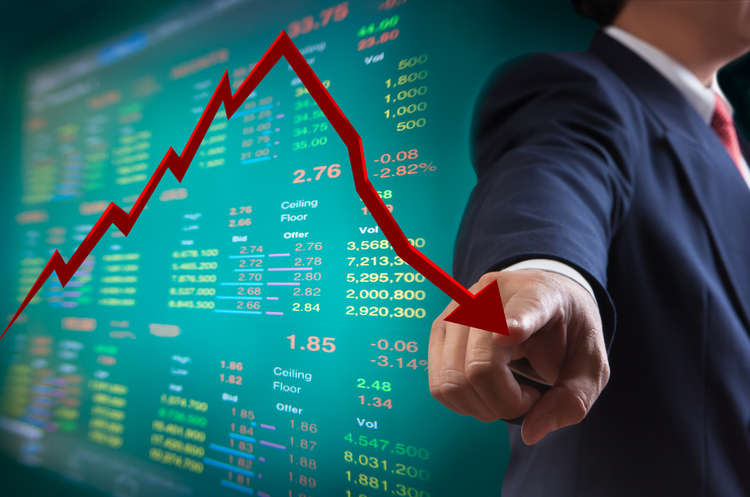Panic on Wall Street: the collapse of stock markets threatens the US with recession
The probability of a recession in the world's largest economy reached 50% after statistics showed an unexpected jump in unemployment - from 4.7% to 4.9%

On Monday, global markets suffered the worst collapse since the 2020 pandemic. Stock indices, commodity prices, and cryptocurrency rates simultaneously plummeted on exchanges from Asia to the United States.
The avalanche of sales started in Japan, where the Topix index fell by 7.8% at the start of trading, after which the Tokyo Stock Exchange temporarily suspended all operations.
At the end of the session, the Topix lost 12.2%, the worst drop since 1987, while Taiwan's Taiwan's fell by 8.4%, a record low in history.
"The movements in Asia caused panic selling," analysts said. When it came to trading in Turkey, the Istanbul Stock Exchange's stock index dropped 4.3%, and trading was halted twice.
The decline in Europe was a little more modest: the German DAX fell by 2.6%, the British FTSE 100 index dropped by 2.2%, and the French CAC 40 by 2.3%.
The trading day in the US began with a 4.2% drop in the S&P 500 index, with 455 of the 500 shares of the largest US companies in the red.
The Nasdaq index, which includes the hi-tech giants of the US economy, fell by 5.2%.
"We haven't seen a meat grinder like this since the Covid sell-off in February-March 2020," says Toin Sycamore, an analyst at IG Australia.
JPMorgan analysts explain the fears of a recession in the United States: according to their estimates, the probability of a recession in the world's largest economy reached 50% after statistics released on Friday showed an unexpected jump in unemployment from 4.7% to 4.9%.
The most dangerous scenario for the US economy would be an increase in unemployment, followed by a drop in spending, and then a further restriction on hiring, income and economic activity, which could lead to a recession.
In addition, tech stocks, which benefited so much from the positive sentiment at the beginning of the year and the hype around AI and almost single-handedly pulled the market up, have been hit hardest and are now dragging it down.
For example, Intel's stock fell by 30% due to the news of a $1.6 billion loss for the quarter and the layoff of 15% of its employees.
Apple fell by 8% after Warren Buffett sold almost half of his shares in the company, and Nvidia shares fell by 10% due to bad news – a delay in the launch of new chips with artificial intelligence due to design flaws.
The markets are under pressure from the escalation in the Middle East, analysts say. According to US intelligence, Iran may strike at Israel in the coming days to avenge the assassination of Hamas leader Ismail Haniyeh in Tehran. Israel, in turn, is considering a preemptive strike against Iran.
Following the stocks, cryptocurrencies plummeted: bitcoin fell by 16% to $52,582 and could have its worst day since November 2022, while ethereum fell by more than 22%.
If you have read this article to the end, we hope that means it was useful for you.
We work to ensure that our journalistic and analytical work is of high quality, and we strive to perform it as competently as possible. This also requires financial independence. Support us for only UAH 196 per month.
Become a Mind subscriber for just USD 5 per month and support the development of independent business journalism!
You can unsubscribe at any time in your LIQPAY account or by sending us an email: [email protected]



